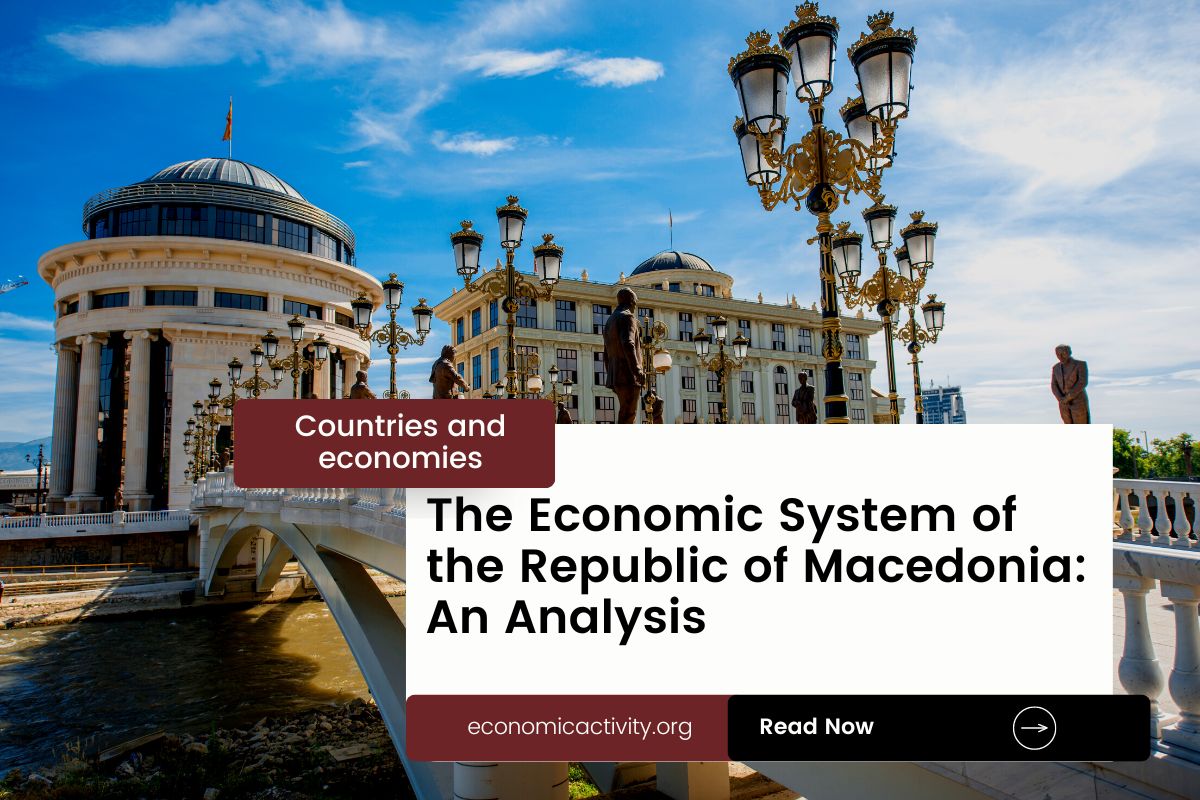What is the economic system of Macedonia? The economy of Macedonia is based on a mixed economy. The country’s economic system combines elements of a market economy and a planned economy.
Macedonia’s economy is based on manufacturing, agriculture, and services. Key industries include textiles, food processing, metals, and tourism.
In Macedonia, the economy is composed of a private sector, consisting of individuals and businesses that make autonomous decisions based on self-interest, and a public sector, where the state determines the production and distribution of certain goods and services. No country is purely capitalist or purely communist.
What do the freedom indexes tell about the economic system of Macedonia?
Now, to determine if a country is mostly a market economy or a planned economy, it is useful to examine some economic indexes. For instance, according to the 2022 Index of Economic Freedom, which measures the ability of every human to control his own labor and property, Macedonia is ranked 53rd globally and 32nd in Europe indicating that the country has a moderately free economy.
In a similar way, the 2022 Freedom House index evaluates the state of political rights and civil liberties globally. Generally, market economies tend to align more with democracy and freedom, while command economies tend to be characterized by greater state control and fewer democratic and civil liberty protections. Macedonia gets a score of 67/100, which qualifies it as Partly Free.
Macedonia is considered to have a government that does not control what people do, and people can make their own economic decisions, but it is only considered an electoral democracy, lacking full liberal democratic protections.
What do the biggest companies in Macedonia say about the country’s economic system?
The biggest company in Macedonia should also be looked at, as well as whether it is a state-owned or private company. In this case, Komercijalna Banka AD is a leading bank in Macedonia, offering a range of financial services including retail banking, corporate banking, and investment banking. The company is owned by NLB Group the largest banking and financial group in Slovenia.
Macedonia’s private sector industries include manufacturing, agriculture, and tourism, while the public sector industries include healthcare, education, and transportation.
The historical factors that have influenced the economic system of Macedonia
Macedonia’s mixed economy system is the result of market forces, government intervention, and foreign investment. The government has implemented policies to promote economic growth, such as tax incentives, subsidies, and investment in infrastructure.
Foreign investment has also played a role in the development of the economy, providing capital and technology. Additionally, the country’s geographic location has enabled it to benefit from trade with its neighbors.




Leave a Reply